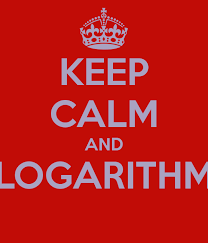Logressions
 x
,
y
,
z
are real numbers that satisfy the equation below
x
,
y
,
z
are real numbers that satisfy the equation below
lo g ( x − 2 y + z ) + lo g ( x + z ) = 2 lo g ( x − z )
What kind of progression do x , y , z form?
Details and Assumptions
-
A P denotes Arithmetic Progression
-
G P denotes Geometric Progression
-
H P denotes Harmonic Progression
-
A G P denotes Arithmetic-Geometric Progression
This section requires Javascript.
You are seeing this because something didn't load right. We suggest you, (a) try
refreshing the page, (b) enabling javascript if it is disabled on your browser and,
finally, (c)
loading the
non-javascript version of this page
. We're sorry about the hassle.
1 solution
This problem is from Hall and Knight Higher algebra,if i am not mistaken,Krishna.
Log in to reply
I don't know about that. I took it from a past question paper of Maths Olympiad
Yes Anik I have that book this question is there in the book.
Alternatively, you can note that for x , y , z to be in HP, we need x 1 , y 1 , z 1 to be in AP. Then we have, using properties of AP,
y 2 = x 1 + z 1 ⟹ y 2 = x z x + z ⟹ y = x + z 2 x z
which matches with the result from the given logarithmic equation. Our results are matched and hence, we confirm that the sequence { x , y , z } is a HP.
First lets use the properties of logarithms to simplify the expression:
lo g ( x + z − 2 y ) ( x + z ) = lo g ( x − z ) 2
∴ [ ( x + z ) − 2 y ] ( x + z ) = ( x − z ) 2
( x + z ) 2 − 2 y ( x + z ) = ( x − z ) 2
[ ( x + z ) 2 − ( x − z ) 2 ] = 2 y ( x + z )
2 x z = y ( x + z ) ⟶ y = x + z 2 x z
Now we have to substitute in variables in a and d for each variable , After trial and error we get that the H.P satisfies this. Lets look at the proof.
Now let x = a 1 ; y = a + d 1 ; z = a + 2 d 1
∴ a + d 1 = ( a 1 ) + ( a + 2 d 1 ) 2 ( a 1 ) ( a + 2 d 1 )
a + d 1 = a ( a + 2 d ) 2 × a ( a + 2 d ) 2 ( a + d ) 1
Now simplifying this expression we get:
a + d 1 = a + d 1
⟶ x,y,z are in Harmonic Progression ⟵